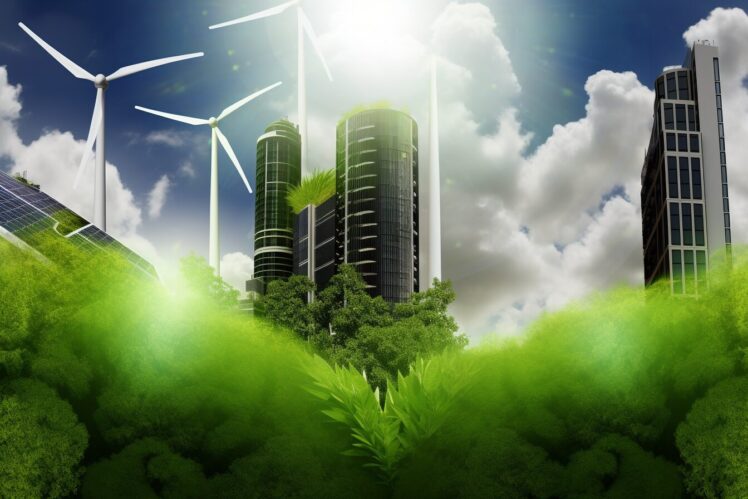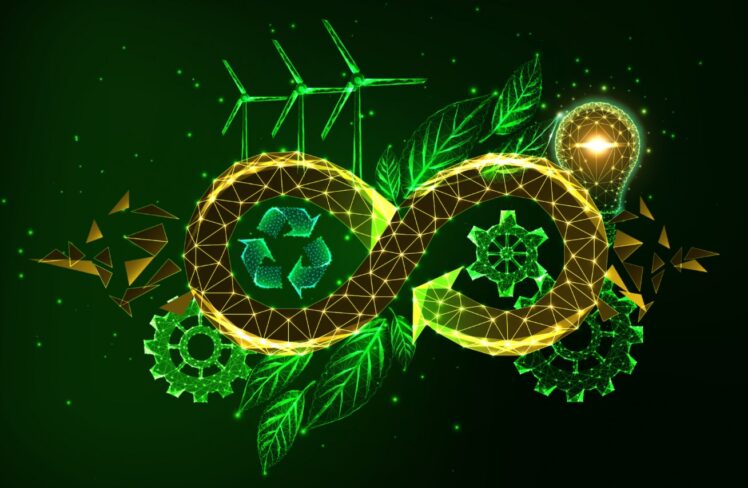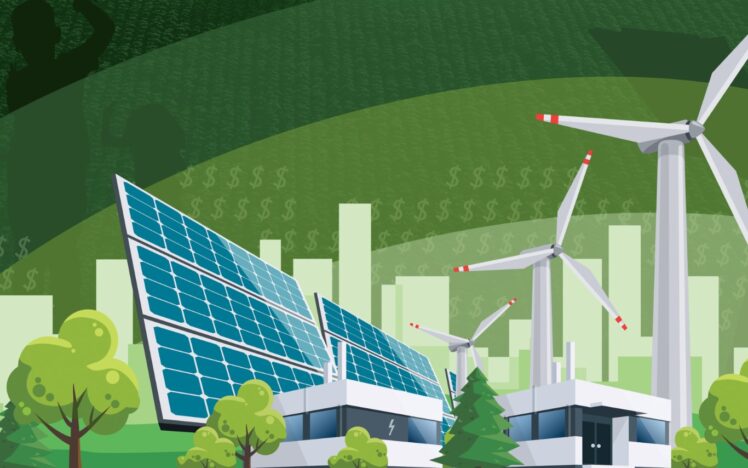
In a world where environmental concerns have reached a critical point, the role of sustainable technology has emerged as a beacon of hope. As we grapple with the challenges posed by climate change, resource depletion, and pollution, innovative technologies are paving the way for a greener and more sustainable future.
These technological advancements are not just making our lives more convenient; they are also vital tools in building a green world that ensures the well-being of both our planet and future generations. Read further to know how sustainable technology is revolutionising the world.
Harnessing Renewable Energy
One of the most significant contributions of sustainable technology to a greener world is harnessing renewable energy sources.
Traditional fossil fuels have fueled our progress but at a great cost to the environment. Sustainable technologies such as solar panels, wind turbines, and hydroelectric generators are transforming the energy landscape.
Smart Grids and Energy Efficiency

Source: clouglobal.com
Sustainable technology isn’t just about generating cleaner energy; it’s also about using energy more efficiently. Smart grids, for instance, are revolutionising the way we distribute and consume electricity.
These intelligent systems optimise energy distribution by monitoring consumption patterns and adjusting supply accordingly. This leads to reduced wastage and a more balanced energy grid. Additionally, smart appliances and energy-efficient buildings are making strides in minimising energy consumption.
LED lighting, for example, uses a fraction of the energy that traditional incandescent bulbs require while lasting significantly longer. Sustainable technologies are thus ensuring that we make the most of the energy we produce.
Revolutionizing Transportation
The transportation sector is a major contributor to greenhouse gas emissions. However, sustainable technology is driving a revolution in this field as well. Electric vehicles (EVs) are becoming increasingly popular due to their lower emissions and reduced dependence on fossil fuels.
Technological advancements in battery technology have extended the range of EVs and reduced charging times, making them a viable alternative to traditional internal combustion engine vehicles.
Waste Management and Circular Economy

Source: eusmecentre.org.cn
Sustainable technology is also addressing the critical issue of waste management. Traditional linear consumption patterns, where resources are extracted, used, and discarded, are no longer sustainable.
Sustainable technology promotes a circular economy, wherein products and materials are designed to be reused, recycled, or repurposed.
Technologies like 3D printing are enabling the creation of products with less waste, as they allow for precise manufacturing and customisation.
Moreover, innovations in recycling processes are making it possible to recover valuable materials from electronic waste and other discarded products, reducing the strain on natural resources.
Monitoring and Conservation
Advancements in sensor technology, data analytics, and artificial intelligence are playing a crucial role in environmental monitoring and conservation efforts. These technologies provide real-time data on air and water quality, wildlife movement, deforestation, and more.
Conservationists and policymakers can make informed decisions to protect and restore ecosystems with this information. For example, satellite imagery helps track changes in forest cover and illegal logging activities, enabling prompt intervention.
Additionally, the Internet of Things (IoT) allows for the creation of “smart cities” that optimise resource usage, reduce pollution, and enhance overall quality of life.
Challenges and Future Outlook

Source: tcf.org
While the role of sustainable technology in building a green world is undeniable, challenges remain. The transition to a sustainable future requires substantial research, development, and infrastructure investment.
Additionally, there are concerns about the environmental impact of producing and disposing of certain technological components. However, ongoing research aims to address these issues by developing more environmentally friendly materials and processes.
Sustainable technology is at the forefront of the global effort to create a greener and more sustainable world. From renewable energy sources to smart grids, electric vehicles, and waste management innovations, these technologies are reshaping industries and lifestyles.
By embracing and further developing these advancements, we can mitigate the adverse effects of climate change, reduce pollution, and conserve our planet’s precious resources.
As individuals, communities, and nations, we must recognise the role we play in adopting and promoting sustainable technologies to ensure a healthier, more prosperous future for generations to come.
The path to a green world is illuminated by the power of innovation and technology, offering a promising route to harmonious coexistence between humanity and nature.





